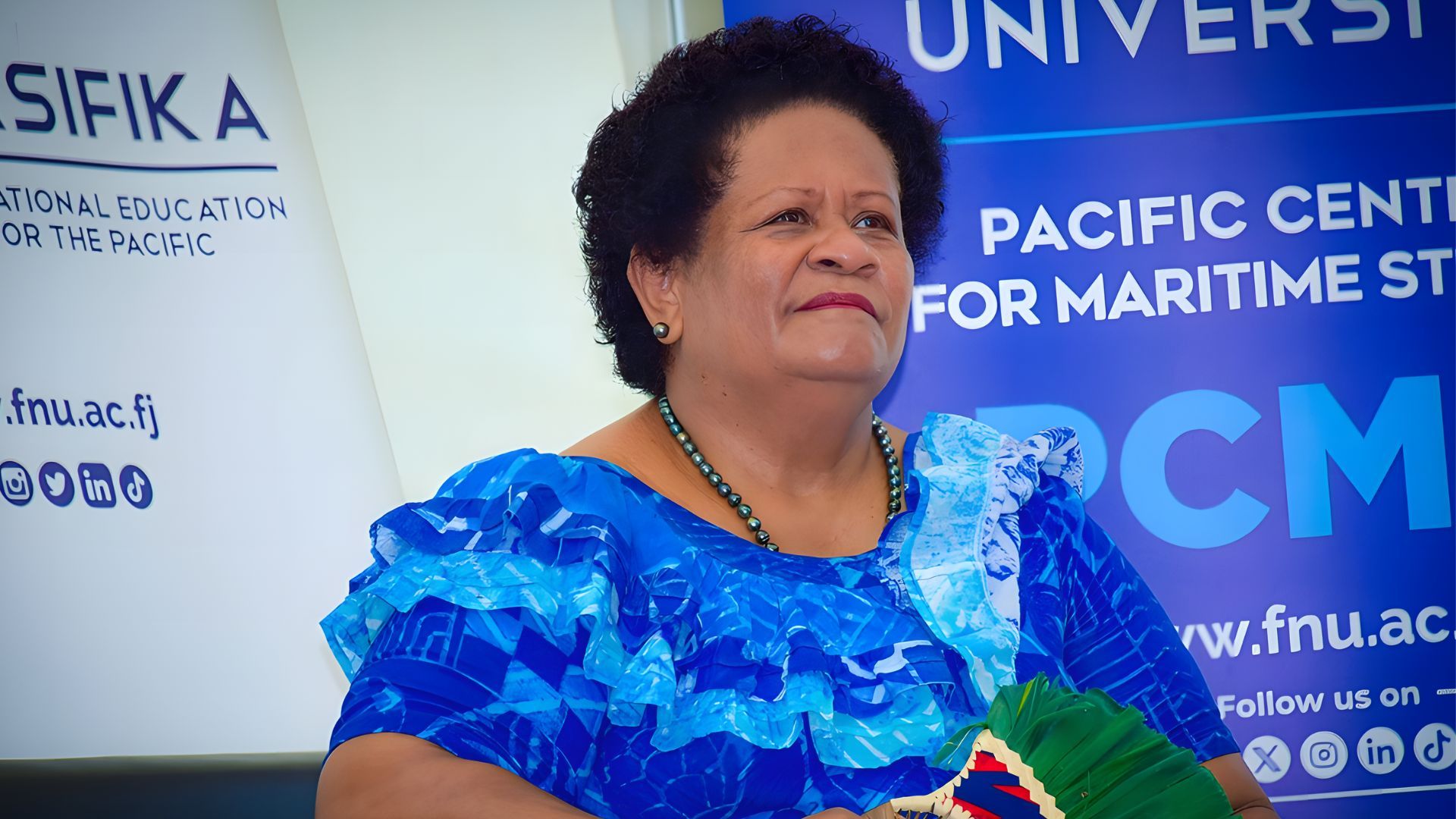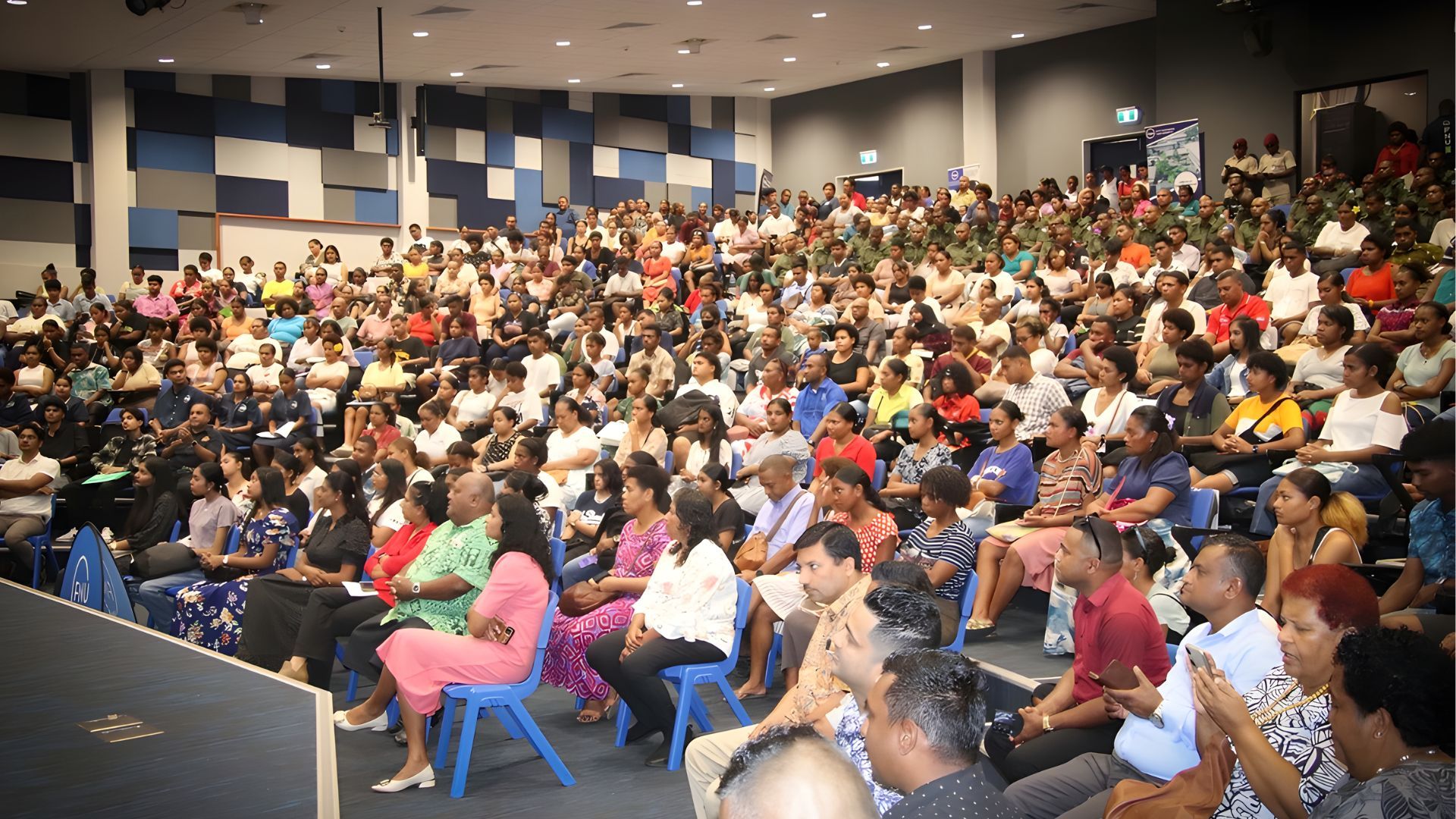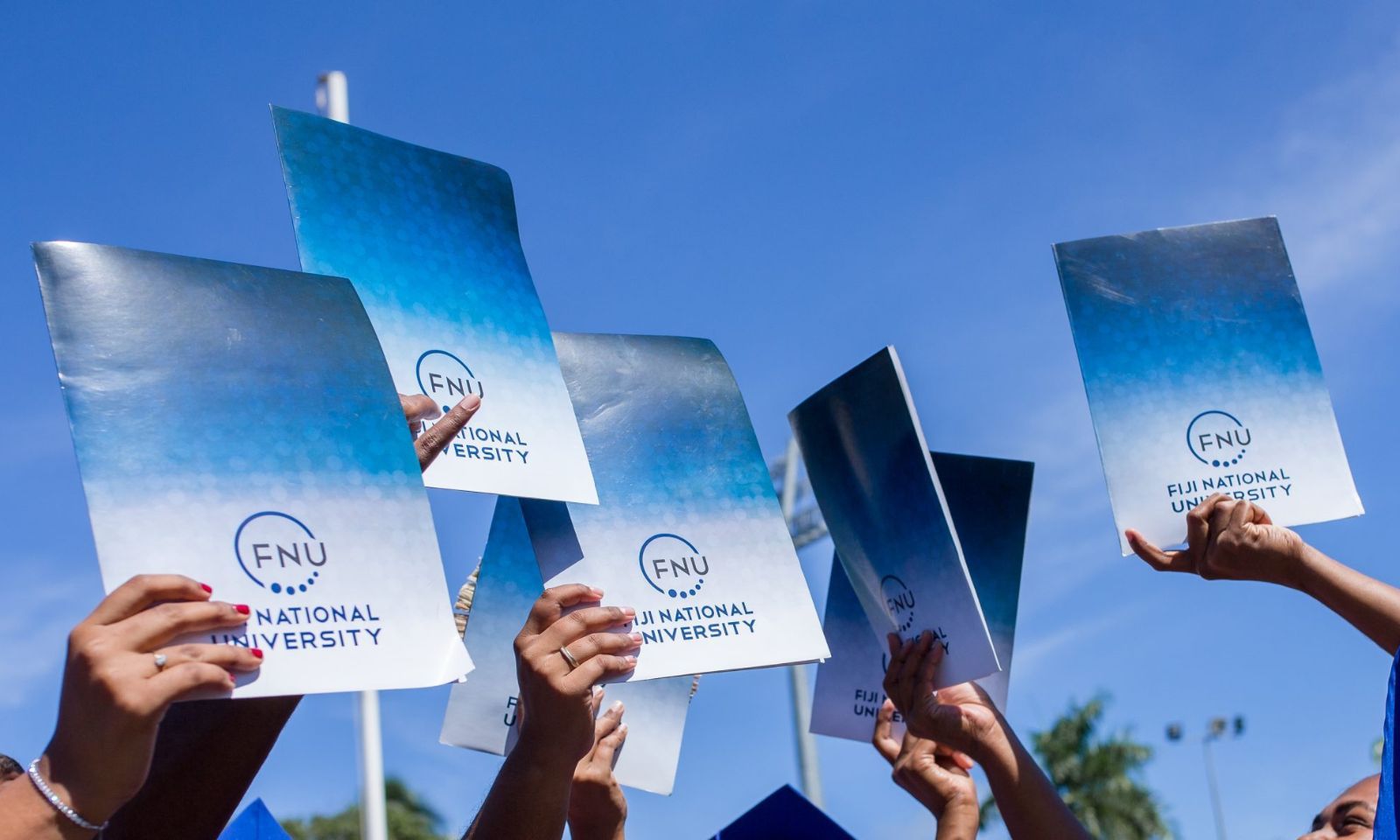

The Fiji National University is working to gain global accreditation for its courses.
Photo/FNU
Overseas accreditation plan for Fiji university
FNU reveals long-term plan for accreditation as Fijian qualifications go unrecognised abroad.


Young talents set to shine at Te Maeva Nui

Calls for culturally grounded housing solutions amid homelessness crisis


George 'Fiji' Veikoso leaves lasting legend of heartfelt music and cultural influence - fans

Young talents set to shine at Te Maeva Nui

Calls for culturally grounded housing solutions amid homelessness crisis

For many Fijians, the dream of moving overseas promises better job prospects and financial security, but for decades, Fiji university graduates have had their dreams delayed or even denied.
Their hard-earned degrees from back home are not being recognised by employers or accreditation bodies abroad.
Graduates from institutions like Fiji National University (FNU) and University of the South Pacific (USP) often find themselves repeating qualifications, undergoing additional assessments, or settling for lower-paying jobs unrelated to their field of study.
This has prompted FNU to work towards improving the global recognition of Fijian qualifications.
The university says it is looking to get global accreditation which will open doors for students to participate in educational opportunities anywhere in the world.
Vice Chancellor Dr Unaisi Baba says FNU will be actively pursuing international accreditation for its various programmes, including the Technical and Vocational Education Training (TVET) courses.
Baba told PMN News, this is part of their longer term vision for FNU.
“The new strategic plan for FNU is for the period of 2027 to 2037,” Baba says.
“Within that decade, we should have accreditation from the US, the Western Accreditation of Senior Colleges.”

Fiji National University Vice Chancellor Dr Unaisi Baba. Photo/FNU
Countries like Australia, New Zealand, Canada, and the United States often require foreign degrees to go through rigorous evaluation processes, which can be costly and time-consuming.
Baba, who only took over the helm of leadership at FNU at the end of 2023, says it is her dream to get the accreditation for FNU.
“I left the University of the South Pacific because I wanted to understand how to deal with this,” she says.
“So, for the last two years, Professor Jimaima Lako, the second woman professor at FNU, has been heading the review of all our courses, in this regard.
“We’ll finish the review in 2026 and in 2027 the new strategic plan comes into place, for an overall university accreditation.”

The Fiji National University is the largest national university in the South Pacific. Photo/FNU
Dr Baba adds the accreditation will be two-fold.
“I'm forcing the TVET courses, all of it, engineering, carpentry and the whole works to get the ASEAN accreditation.
“They have a block accreditation for TVET courses.
“And, academics, the Western Association of Schools and Colleges (WASC).”
Dr Baba says the groundwork on getting the accreditation has already started.

TVET courses offered at the Fiji National University will also get overseas recognition. Photo/FNU
“We are beginning our WASC journey and this year we will begin to get visitors from the US,” she says.
“We'll get our people to get used to receiving the leaders of accreditation… when it comes to approval, we will get it.
“Besides that, we are just rebuilding our team.”
She says obtaining accreditation is a lengthy and arduous process.
“It's going to be a lot of work because WASC checks everything, from the bathroom to the spaces for the children, to the foundation that I started,” Dr Baba says.

The accreditation will enable Fijian qualifications to be recognised globally. Photo/FNU
“And God will have to help us because that's a whole lot of hard work…we need to work with the Government…so it also understands the way we're thinking about the future.”
According to Dr Baba, currently only the courses at FNU’s College of Engineering are accredited under the Dublin Accord - which is the international recognition of engineering technician qualifications.
She adds accreditation is very important in academia.
Fijian national Vasemaca Kotoiwasawasa says her Postgraduate Diploma in Library Studies and Informations Systems was not recognised here when she came to Aotearoa New Zealand to look for work in 2016.
She had to settle for a night shift cleaner job which paid $16 an hour, almost three times more than her library assistant job back home in Fiji.

Fijian university graduates end up having to settle for lower-paid jobs unrelated to their field of study, as their qualifications are unrecognised abroad. Photo/Google
Her postgrad meant nothing in New Zealand.
“I had worked at the Fiji School of Medicine Medical Library for seven years,” Kotoiwasawasa says.
“But here, no one wanted my papers from university.”
Due to this, Kotoiwasawasa says she has had to pick up work where skills gained could be used on a wider scale in the work force in New Zealand.
“In 2017, I jumped to the meat sector as a commercial cleaner before moving to meat processing and then to butcher work as a trainer,” she says.
Watch FNU provide an update of its curriculum and courses to the World Leading Schools Association last month.
“The transferable skills gained over the eight years at the meat works has helped me secure a permanent role in the education sector here in Christchurch.”
FNU is the largest national university in the South Pacific and it enrolls over 30,000 students from a wide range of countries, and in a wide range of academic, technical and vocational programmes.